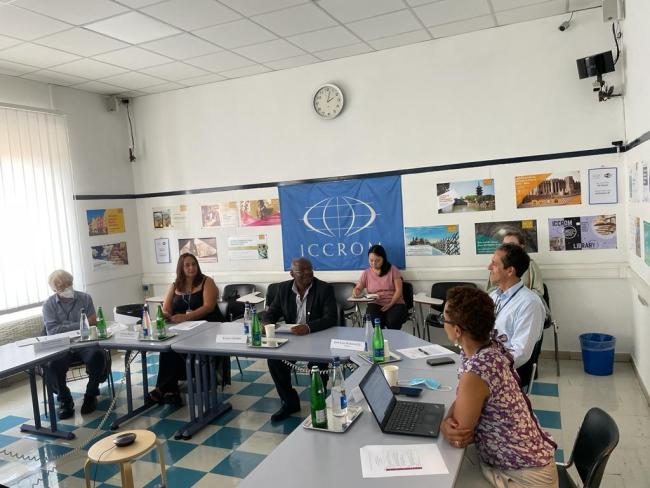
On 14-16th September, ICCROM organized the initiative “Valuing Cultural Capital: Accounting for the Hidden Value of Heritage”, structured in a workshop, public webinar and the launch of a global survey on heritage valuation.
The workshop involved leading cultural economy intellectuals and researchers, representatives from governments (UK, Italy), heritage agencies (Historic England, ICOMOS) and academics, to reflect on how to improve current methods to evaluate the hidden value of cultural assets and their social benefits.
Building on the work led by the UK government's Department for Digital, Culture, Media and Sport to develop a 'heritage and cultural capital approach', the meeting was enriched by contributions from experts from other fields, such as environmental economics, philosophy, international law and finance, cultural tourism. One of the most relevant aspects concerned the need to use economic evaluations not only to support with empirical evidence the choices related to heritage funding, but also to facilitate the identification of the beneficiaries of such investments and how cultural economy can significantly contribute to the reduction of inequalities, improving people's lives and strengthening communities.
The workshop concluded with a public webinar (Friday 16 September) featuring distinguished speakers - such as Prof. David Throsby (Macquire University), Dr Adala Leeson (Historic England), Prof Luigi Fusco Girard (ICOMOS), Dr Antonia Gravagnuolo (CNR, Be.CULTOUR project), Alison Heritage (ICCROM) and Prof Patrizia Riganti (University of Glasgow) - during which the role of economic methods in balancing the diversity between an "expert" and "public" point of view about the meaning of heritage value was explored. Finally, the need for a new values-based and people-centred ‘wellbeing approach’ to heritage emerged. The webinar was attended by more than 250 people from 71 countries. The workshop and webinar coincide with the launch of a survey addressed to ICCROM member states, which is part of the research conducted in the Valuing Cultural Capital for Inclusive Sustainable Development project, led by Prof. Riganti in collaboration with ICCROM and Prof. Throsby, and funded by the Economic and Social Research Council, UK. The aim is to understand how evaluation methods are currently used to support public policy decisions regarding the protection, conservation, maintenance and restoration of cultural heritage. The results will be presented at an international event planned for 2023.
